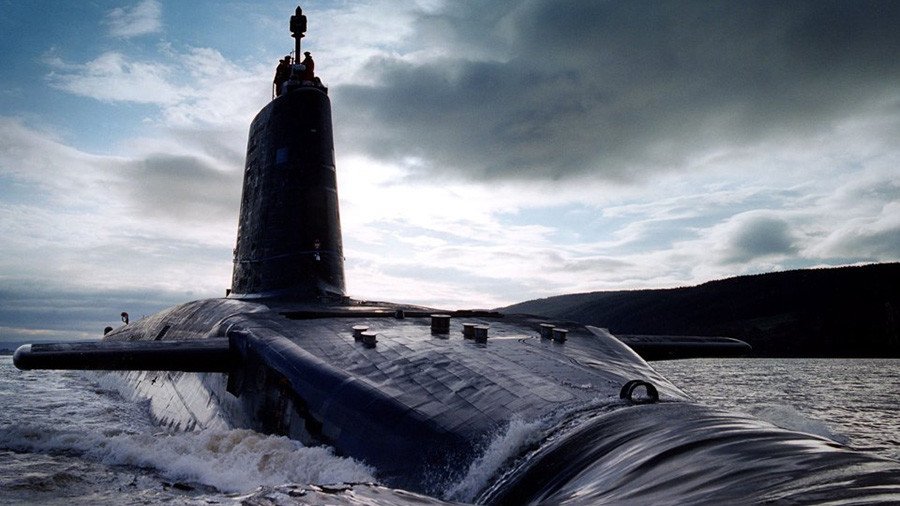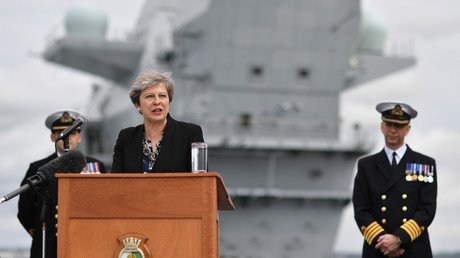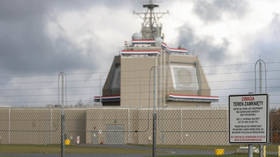If the MoD can’t afford Trident nuclear subs, where will the money come from?

Anti-nuclear campaigners have hit back after the Ministry of Defence (MoD) said its brand new Trident submarines could be paid for out of other departments’ budgets. The new fleet is likely to cost more than the entire MoD budget.
National security adviser Mark Sedwill disclosed the department is considering shifting the budget of the Trident program, made up mostly of four nuclear warhead-carrying submarines. The news comes after 10 years of squabbling between the MoD and the Treasury over who should cover the cost of the nuclear deterrent.
The MoD has an annual budget of £36 billion (US$48 billion). The cost of the Trident program is estimated to eclipse that, costing £31 billion with a £10 billion reserve for any hidden expenses or extra costs.
Anti-nuclear activists think the real cost of the program, taking into account in-service costs and the storage and safe decommissioning of the old fleet, will bring the price tag to £205 billion or more.
The Campaign for Nuclear Disarmament (CND) said removing the Trident submarines from the MoD budget would be an “extraordinary development.”
“This is an extraordinary development if the government goes ahead,” CND chair Dave Webb said in a statement. “Where precisely will £205 billion or more, the full cost of Trident replacement, be found outside of the MoD budget?”
“The government has repeatedly said it hasn't got billions laying about so, for lack of a magic money tree, this can mean only one thing: further cuts to schools, hospitals or other areas of social spending. There are growing numbers of MPs concerned about the impact of Trident spending on conventional weaponry and defense,” Webb added.
“The leaks on HMS ‘Queen Elizabeth’, the new aircraft carrier, could well be an example of the sort of corner-cutting the MoD is charged with. But the answer to this is not to shift the responsibility for Trident spending elsewhere. The credible answer is that it’s time to face the reality about Trident: it’s outdated, expensive, leaves us vulnerable, and doesn’t address the major 21st century security threats. It’s time to cancel Trident.”
Since 2007, the MoD and Treasury have been fighting over the submarine budget. It all started when the MoD said the cost of obtaining the Trident subs had been borne by the Treasury, and not the defense budget. The Treasury at the time refuted this claim, thus commencing the 10-year beef between the government bodies.
The row surfaced again three years later in 2010, when then-Chancellor George Osborne stoked the fire by clashing with Liam Fox, who was defense secretary at the time. Osborne insisted the costs would come out of the defense budget, furthering the bad blood between the two.
More recently, the newly appointed defense secretary, Gavin Williamson, said the Trident program “has traditionally not sat as part of the defense budget: that changed only post-2010,” stoking the flames once more.
This was something of a gaffe by the freshly minted (and some say completely underqualified LINK HERE) defense secretary. The MoD issued a correction on December 7, clarifying that “the UK’s nuclear deterrent has always been funded from the defense budget.”
But hold onto your hats – a government spokesperson said on Monday: “No decisions have been made on any parts of the national security capability review yet.”
















